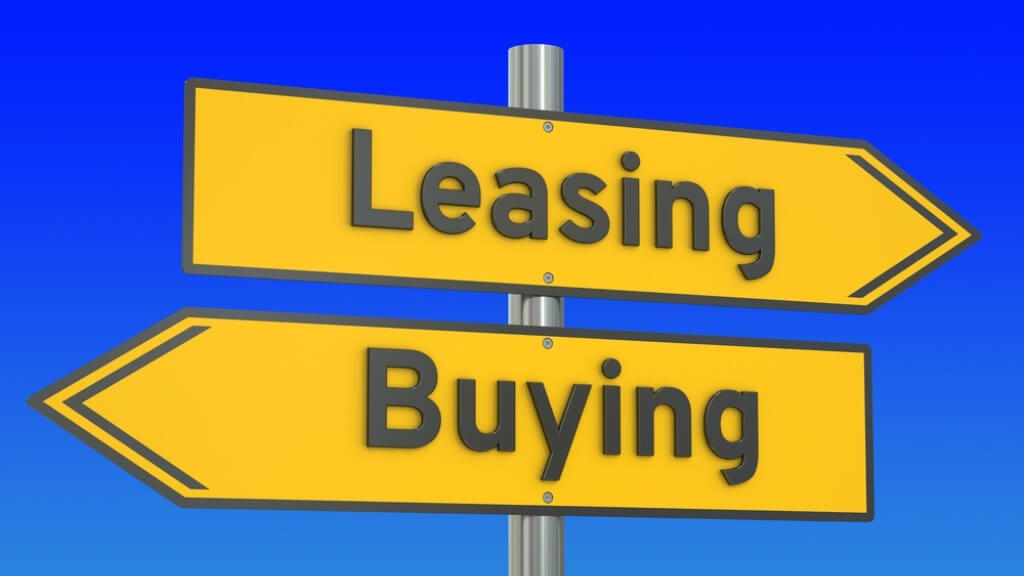Introduction
Is your business stabilized for future growth? Are you thinking of moving into a commercial space? If so, are you not sure whether to lease or buy such a space?
You’re not alone. Every day, corporate owners must decide whether it makes sense to capitalize their profits back into costs such as more equipment, additional employees, or a new place to set up shop.
It can be a difficult task. But with some good planning, financial forecasting, and market analysis, it doesn’t have to be.
Lot of people think McDonald’s as merely a fast-food chain, but the company actually owns commercial space, and they are one of the best real estate in the country. McDonald’s understood early on that the biggest money wasn’t in selling hamburgers; it was in buying up commercial space choice properties. The company then constructed a restaurant on each site and leased it to a franchisee, which ran the eatery and paid rent to the corporate office. This model remains intact today.
But there are many small-business owners who can only afford to lease commercial space when they’re just starting out.
What is the need?
Why leasing a commercial space?
Why buying a commercial space?
It all begins with asking yourself the right questions…
Find out what your objectives are, what your accountant says you can afford, and how your taxes are likely to look, especially with the new tax laws in result. If you’re a start-up and you cannot come up with the money to purchase something, you want to try to lease.
All such aspects are subjected on what kind of use you have. Is there an industrialized area where you can lease, do you need a retail space? For example: Right now big light is on legal marijuana. Are you a grower, a cultivator, a distributor, a retailer?
You probably don’t want to purchase anything right now if you’re any kind of a start-up, because you don’t have idea on what kind of monies you’ll have and how much money you’ll need to put into the process as opposed to putting into debt service.
Owning commercial property is a decision that must be considered very carefully, and every situation is different for every business. But in the precise circumstances, it can be a wise investment, and the potential rewards can be great.
Pros of leasing vs owning a commercial space
To conclude whether leasing or buying commercial space would work for you, below we discuss about the advantages and disadvantages of leasing vs owning a commercial space.
Advantages of Owning
Property (An investment):
As McDonald’s understood, real estate is an investment that pays off over time. Given, property values have been on the decline in recent years. But that means you may be able to buy low now and see the worth appreciate over the next few years. In fact, with the low interest rates and prices of late, it’s never been a correct time to buy commercial real estate.
Money saving: Although a down payment can levy your budget, owning a property gives you the option of refinancing and eventually paying off the mortgage balance. Because rents are subject to increase over time, for long run owning can be better than leasing.
Tax benefits: Ownership offers the benefit of interest and depreciation deductions in order to shelter income from taxes. In addition to this, upon the sale of the property, profits and gains are usually taxed at a lower marginal tax rate than ordinary income.
You are your own landlord: When you own a space, you have control over it. If you want to paint the walls purple or renovate the windows and doors, you can, without requiring anyone else’s permission. This freedom benefits you as your business evolve.
Advantages of Leasing
No down payment is needed:
You usually need a down payment to buy property, which could highly cost your start-up budget or cash reserves. By leasing, you can contribute that capital in growing your business — and keep the option of buying open for future, when your finances are stable.
Having short term options:
As your business develop, it may grow out of its space. By signing a lease of one to five years, you’ll have the choice to move on to a new spot as your needs change. Leasing also offers you the opportunity to try out an area of town to decide whether it’s a convenient location for your clients and staff.
Repairs are managed by property management:
When you lease space, and if the air conditioner breaks, all you’ll have to do is, call the property manager and wait for someone to come up and fix it. If you own that same space, you’ll be giving over thousands of dollars on repairs every time something major breaks down.
Tax benefits:
Unlike owning space, the occupancy costs of leasing are completely tax-deductible. An owner is needs to depreciate the property’s improvement costs, and cannot depreciate the value of the land itself. This benefit might help shield your business’s functional income from federal, state, and local income taxes. However, in some cases tenants do receive the tax bill and are required to pay it, depending on the terms and conditions of the contract.
Cons of leasing vs owning a commercial space
To conclude whether leasing or buying commercial space would work for you, below we discuss about the advantages and disadvantages of leasing vs owning a commercial space.
Disadvantages of Owning
Capital needs: In most cases, commercial property needs down payment of least 20 to 30 percent. This accumulates capital that could rather be invested in your underlying business. However, you might certify for an SBA (Small Business Administration) loan of about 10 to 20 percent if you have at least minimum three years of experience in your business, and occupy at least 51 percent of your tenant space.
Downside risks: There are many risks associated to ownership including the value of the property declining because of the economy or market, financing doubts, and unexpected occurrence of expenses for repairs and maintenance.
Management: Commercial property-management concerns are complex including areas such as legal compliance, health and safety concerns, and contractor management, which can be costly.
Financing: The sources and scope of debt might be limited during an economic recession or depression, and increasing interest rates could make refinancing challenging or impossible.
Disadvantages of Leasing
Loss of salvage value:
Most leases specify that certain improvement done by the tenant becomes the property of the landlord at the end of the lease. Alternatively, the landlord might say that you remove certain improvements made to the premises at your expense.
Control:
Tenants likely to have little or no control over the other types of tenants that lease space in the building. And sometimes, these other tenants may have a negative impact on parking, hours of operation, use and compatibility, or building services. Be aware of non-compete clauses that might, for example, not permit you as a tenant to start clothing business if a clothing store is already established in the space provided.
No equity accumulation:
With leasing, there is any or no opportunity to realize profits from the appreciation of the property occupied. And also, you won’t realize any growth of equity through the reduction of the property’s underlying financing.
Forced relocation can stunt business growth:
Relocating because your business is developing and increasing is an exciting undertaking. But, being forced to relocate has the potential to disrupt all manner of essential connections for your business. Even carefully planned logistical arrangements may face threats and challenges.
Bottom Line
To decide whether to buy or lease your office space comes down to your preferences and requirements.
Buying is a good option if equity building and resale are necessary. But you should be able to manage the down payment, mortgage payments and upkeep.
Leasing is a good option if you do not want to stay to one location or property. Or, you might want to cut down on continuing property maintenance. But arrange and prepare yourself for some upkeep costs and rent hikes.


